
YOU HAVE READ IT and heard it sung many times. You can even sing it yourself, recapturing some of the thrill Rudyard Kipling must have felt,as in a booming voice you bring the dawn up "like thunder."If you can find a copy of the poem, "On the Road to Mandalay," see how many of the places mentioned in it you can locate in this story. Men have been traveling the road to Mandalay for many, many years. Some of them have traveled with the weapons of warfare in their hands.Some have journeyed slowly, cautiously, burdened with much equipment, making a safari to mark them as brave hunters of cunning jungle beasts.Some have gone with drums of oil and with all manner of inventions and improvements to give the natives - at a price. Comparatively few havetraveled the waterway from Rangoon to Mandalay on unselfish missions, bearing words of knowledge and life, offering gifts of healing and enlightenment without money or price. When a man goes up the road to Mandalay to kill, despoil, and exploit, he goes alone. But when he goesto give health, confidence, an unshamed face, God is with him because he is about God's business. It makes a difference to have God with you in the dripping heat of the underbrush or the sheer terror of narrow scrabbled paths on the walls of precipitous ravines. Alone you must believeyour work is only for a day, or a month, or a year; you fight to get your job done and get back home. With God, you know your work is countingfor dozens of years, for an eternity of years. With God, your heart is in your job. Where your work is, there is home. Where you are expendingyour life, your love, there is your habitation. Gordon and Marion Seagrave had traveled the road to Mandalay before, and they had gone farther than that. The road to Mandalay was the easiestpart of the journey, the part made smooth by the passage of multitudes. Even from Mandalay to Lashio, the outpost of the railroad that stretchedits feeble parallel lines of gray silver across the heat and through the moisture-laden valleys, the course was fairly smooth and safe.Many are the men who stop at a comfortable Mandalay, or an easy Lashio. Only a man with hero's blood in his veins sets his face like a flint tojourney on and on and on over the roughest, most heart-breaking roads to a Jerusalem - or a Namkham. Yes, Gordon and Marion had traveled the road before. They had left behind their friends and loved ones in the United States for the friendlessand unloved of Eastern Burma. They had gone to their hospital station after a long journey to Rangoon and then from Rangoon - only to discover thatthe "hospital" was little more than a heap of boards, unwashed disease-breeding boards. Gordon and Marion had answered the call of God, and God hadcome with them. Then at the end of the long road was only the filth-ridden shack to be their pulpit and dispensary. For a while it was a disappointment,but then Moses had once complained that he, too, had nothing to work with, and God had asked quietly, "What is that in thine hand?" Gordon and Marionanswered in their hearts, "We have only this poor hospital - but we will use what we have." So well did they use what they had that the Namkham hospital and the God who inspired men to build hospitals to care for their brothers became the hope of Burma. From scores of miles away they came, bringing their sickness and infection, both of body and mind, and went way, usually withstrengthened, cleansed bodies and often with regenerated minds. These people who lived beyond the conveniently reached cities marveled at the love and power of a man's God who would make him want to come into the unnamed villages and the unnamable jungles to give all that he had and ask nothingin return. When a man has the faith to use what is in his hand, it becomes the outlet for God's power. Gordon and Marion used their hospital with so muchconsecration of purpose it became the means to a larger work. That is the story of this book. It is not a new story. It is the old story of faith, but this time the background is not a sandy expanse in Egypt or a lonely road in Palestine. This time it is a cloud-swept hill set above the dark,green-blanketed gashes that are Burma's valleys. |
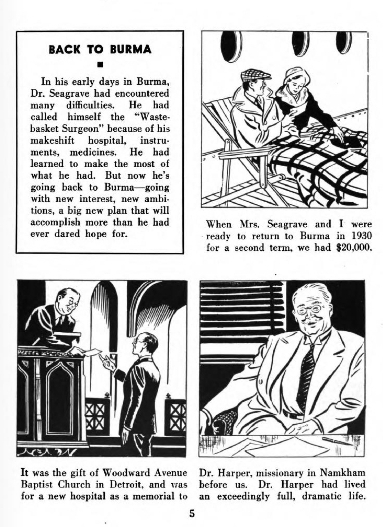
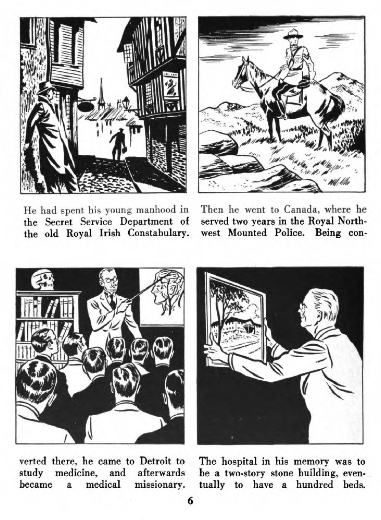
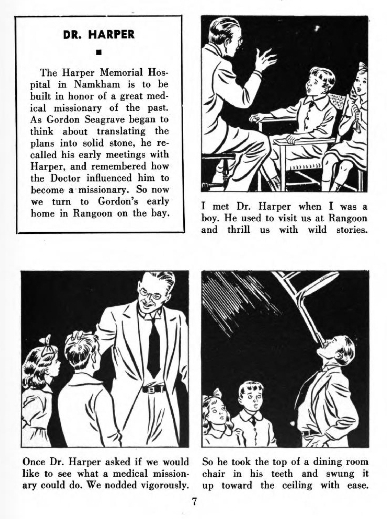
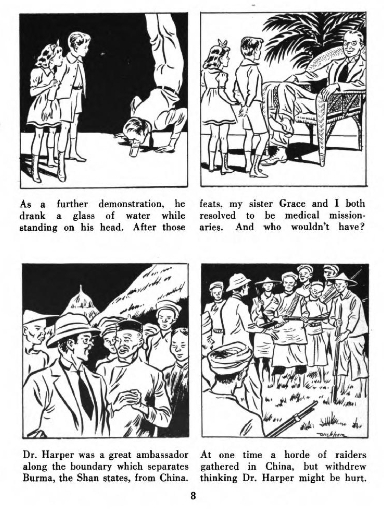
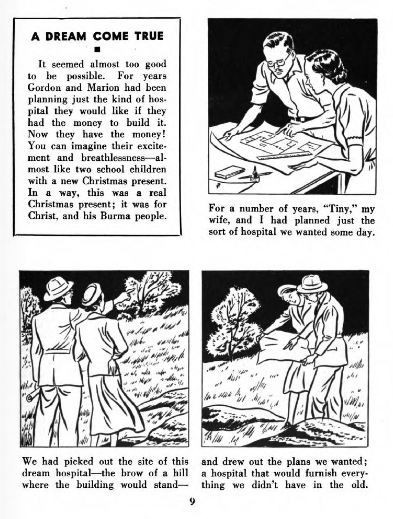
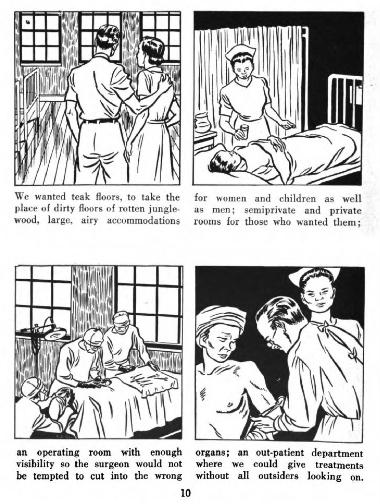
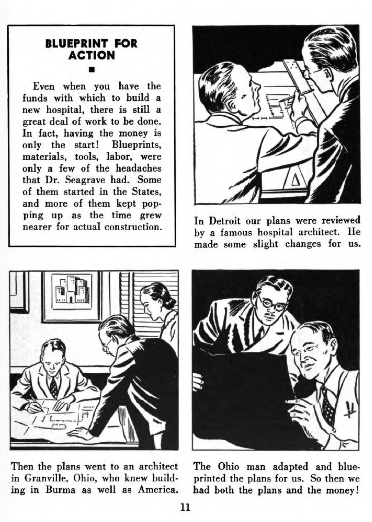
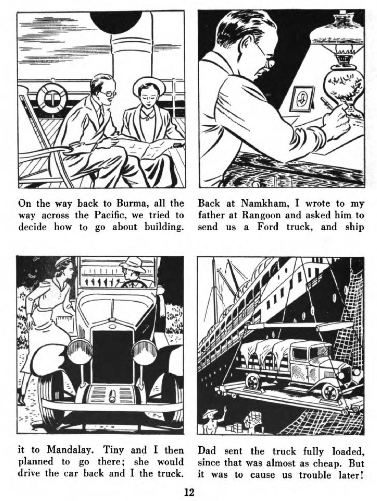
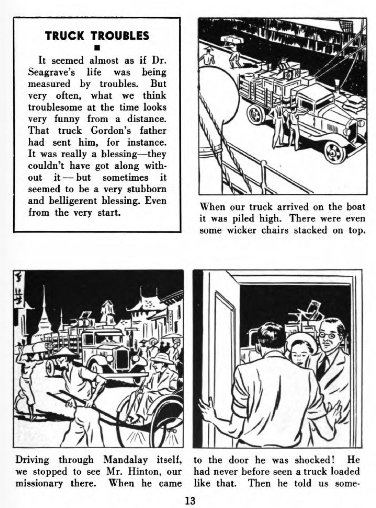
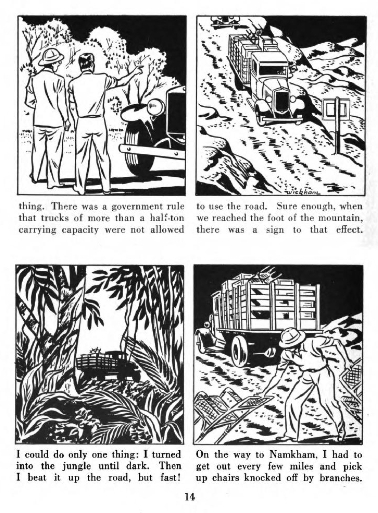
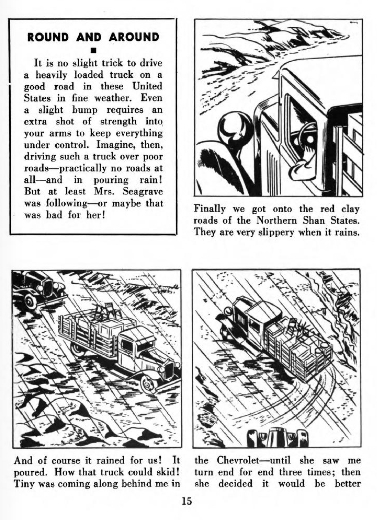
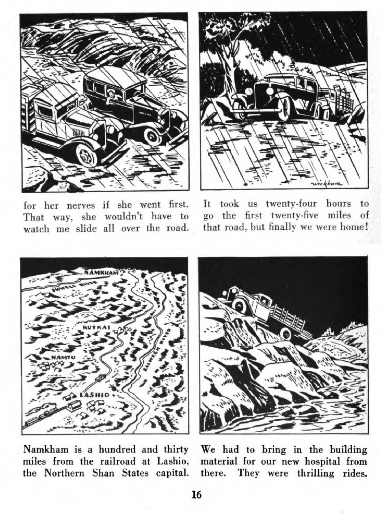
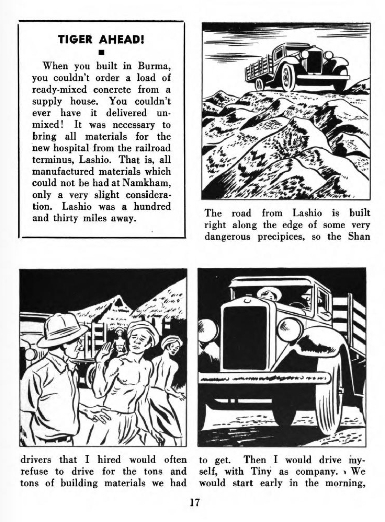
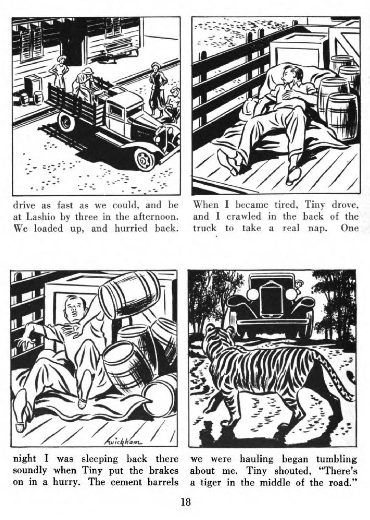
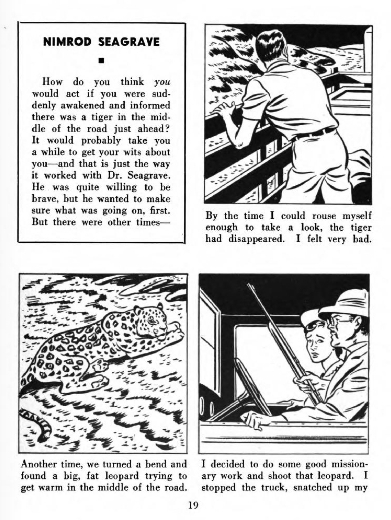
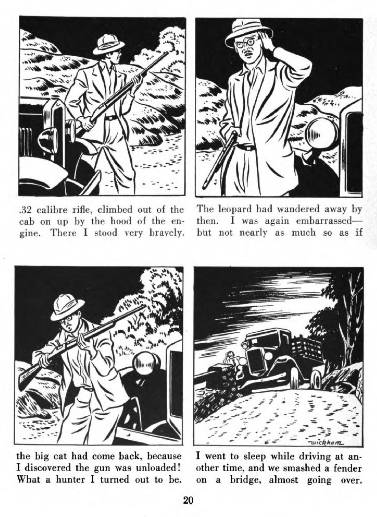
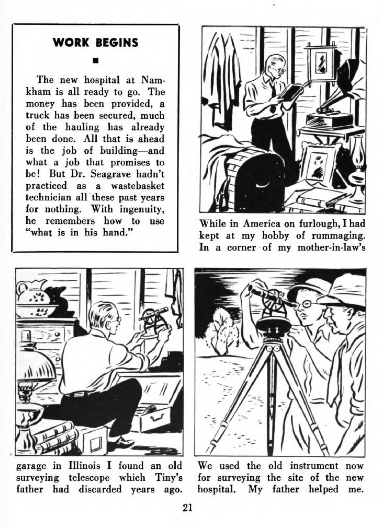
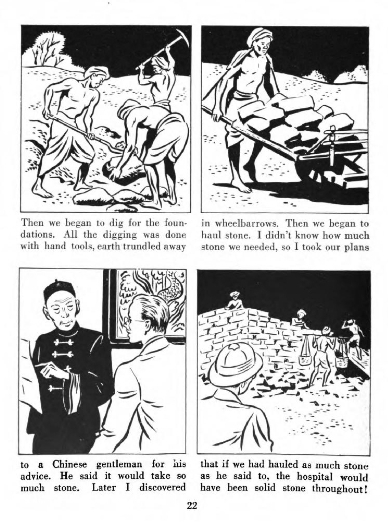
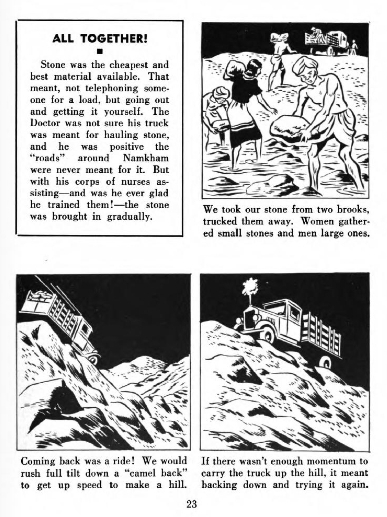
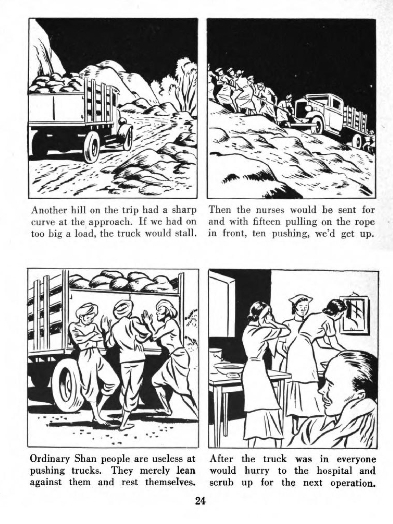
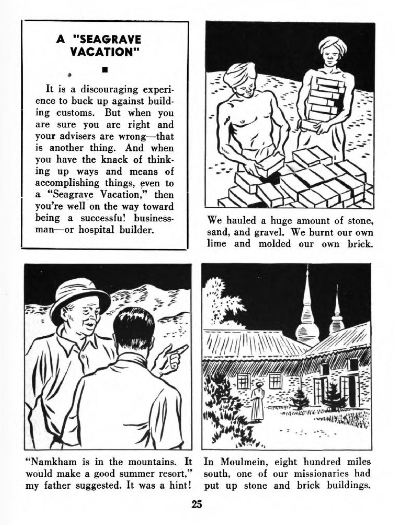
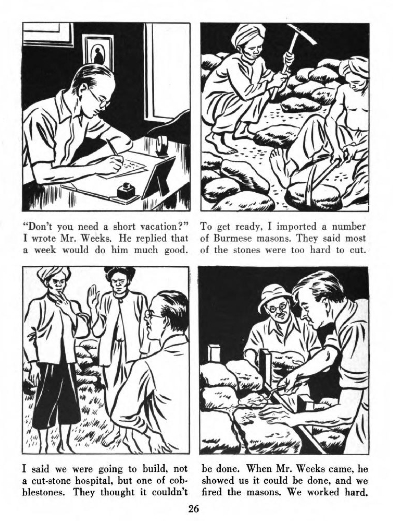
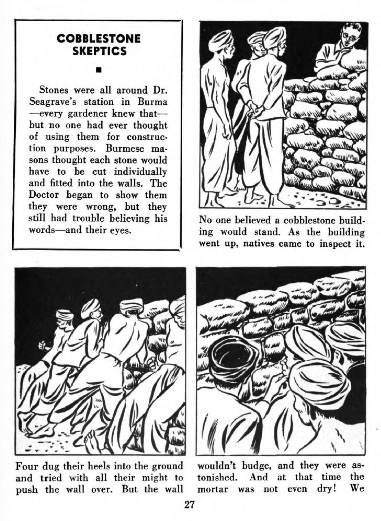
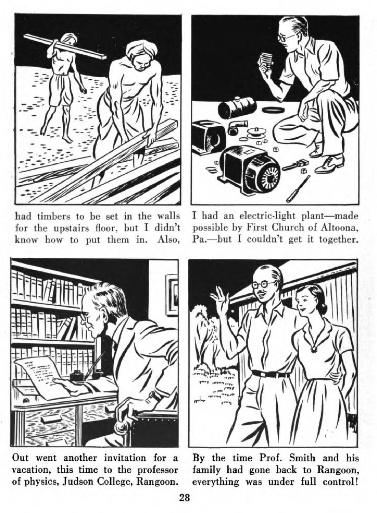
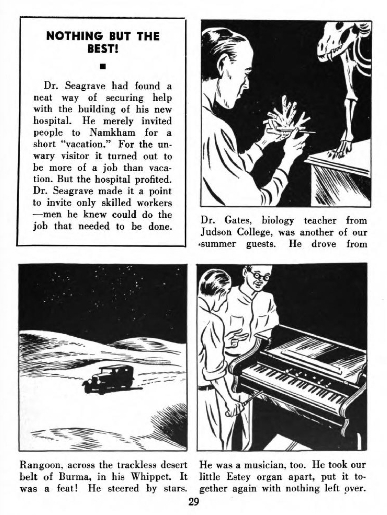
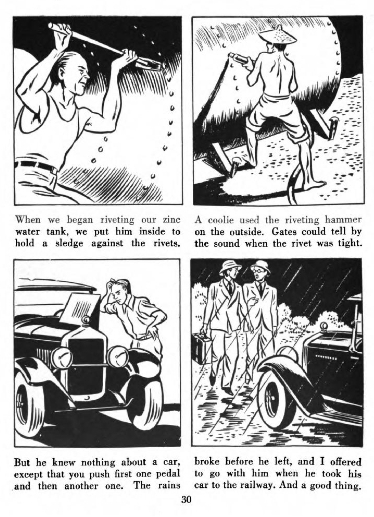
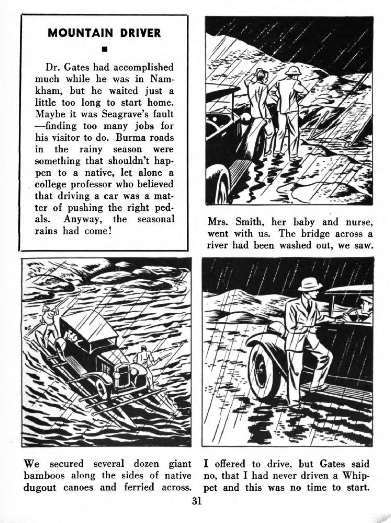
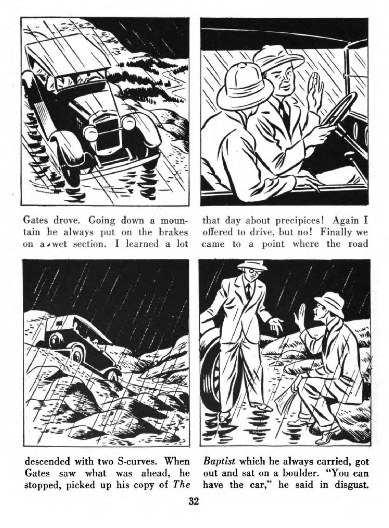
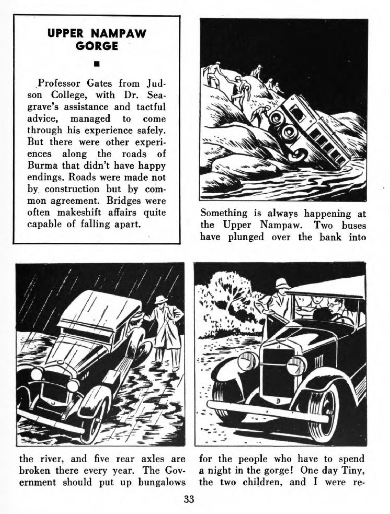
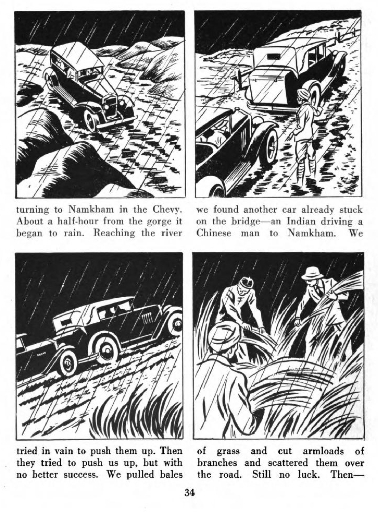
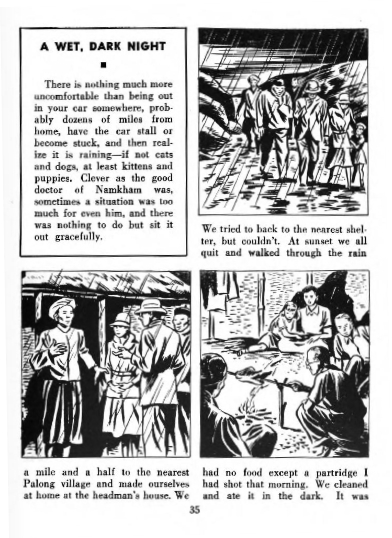
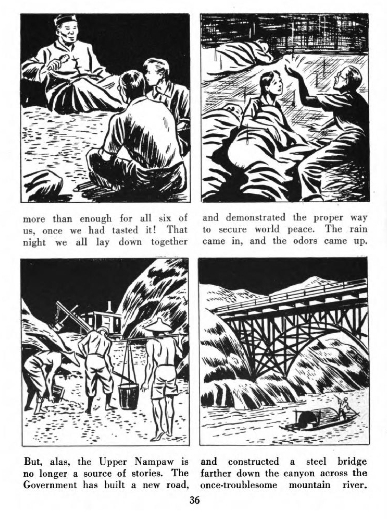
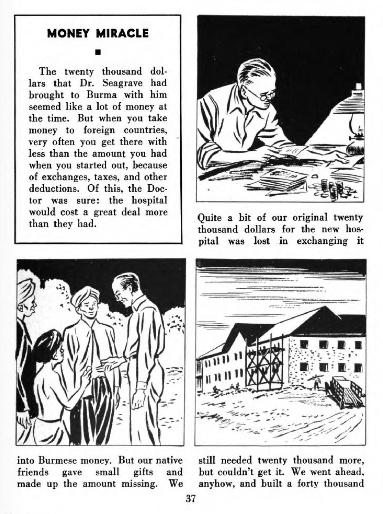

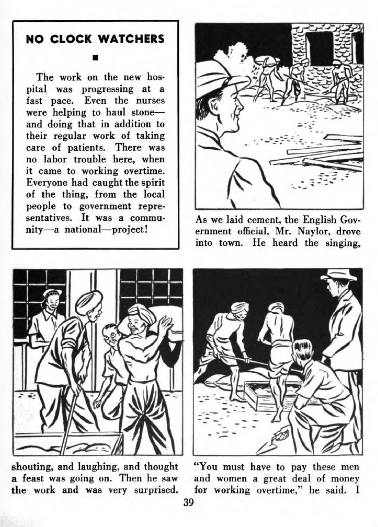
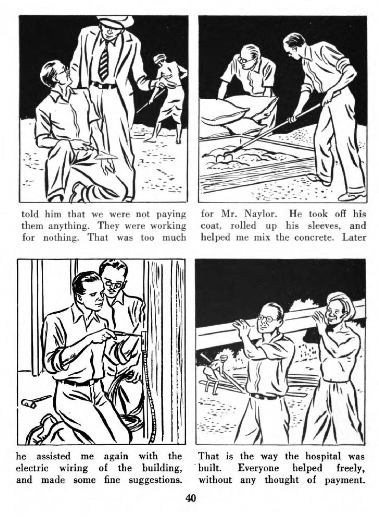
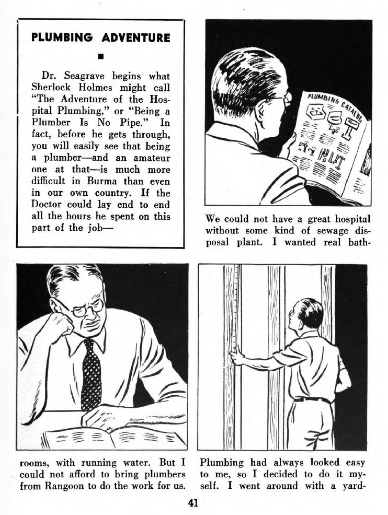
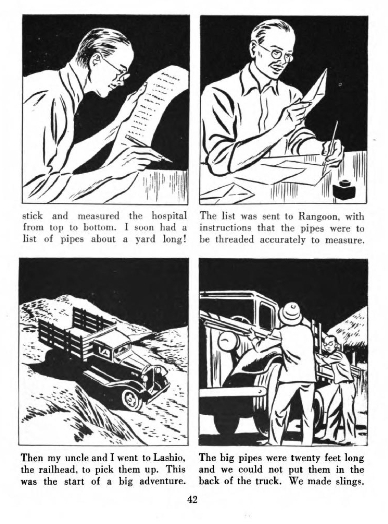
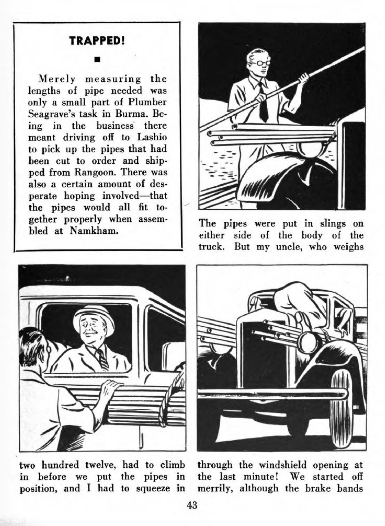
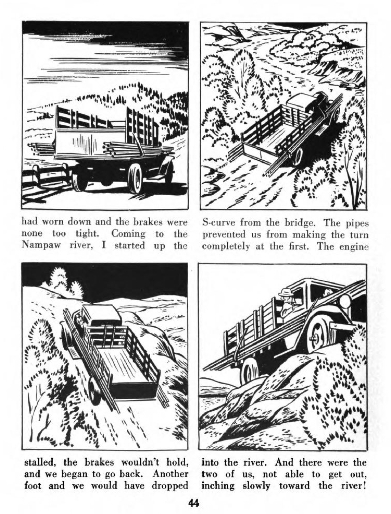
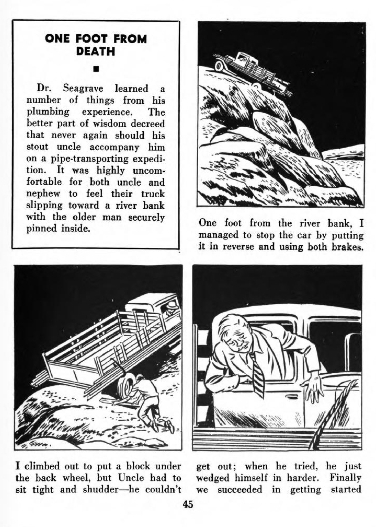
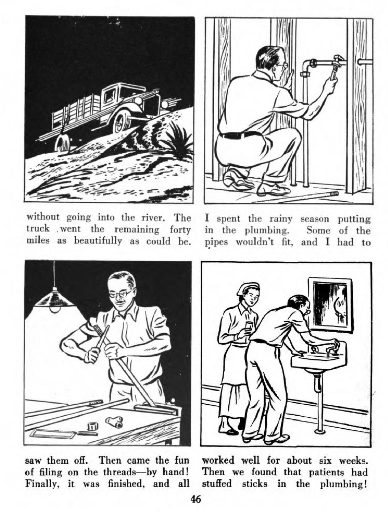
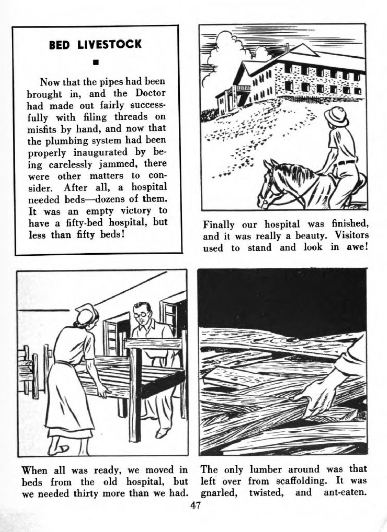
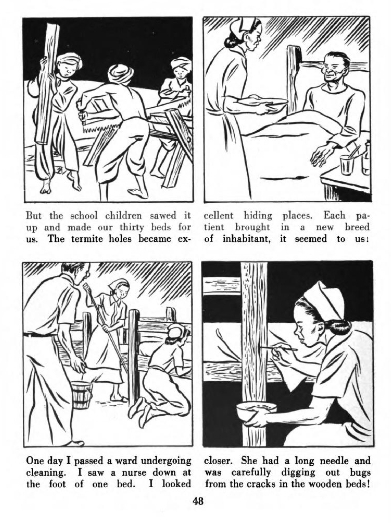
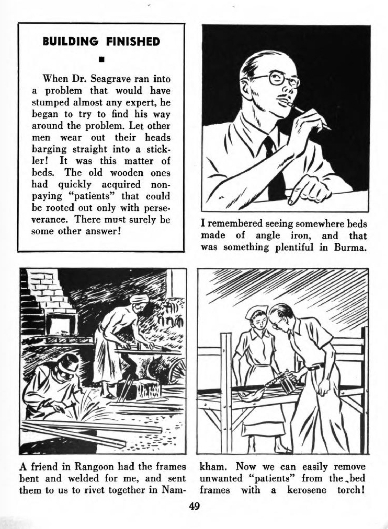
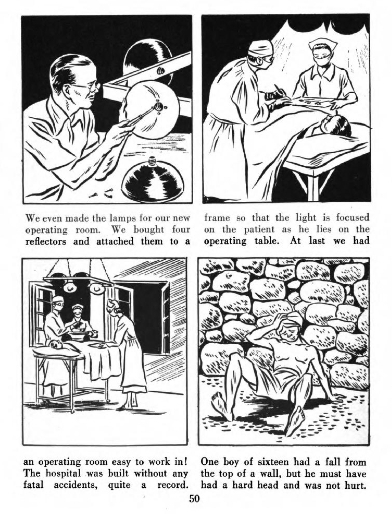
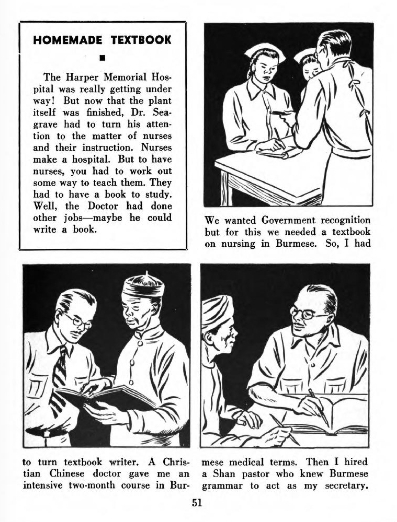
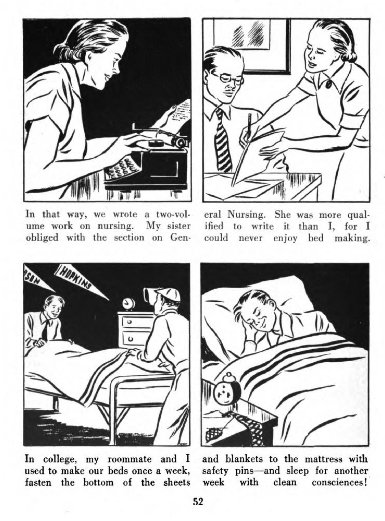
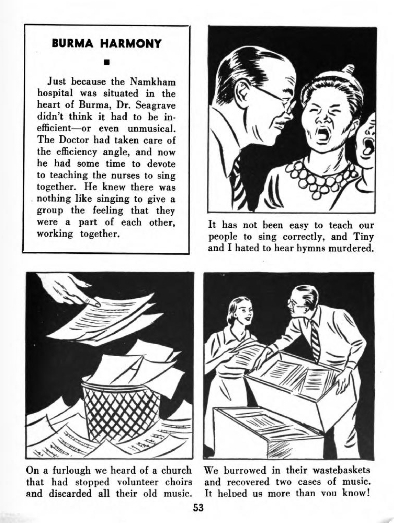
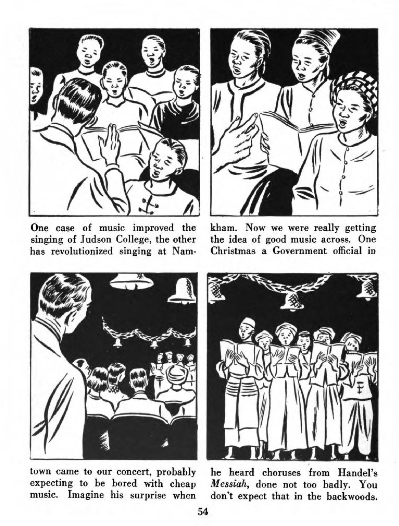
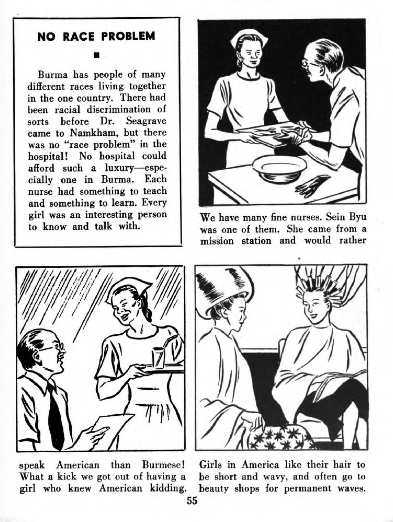
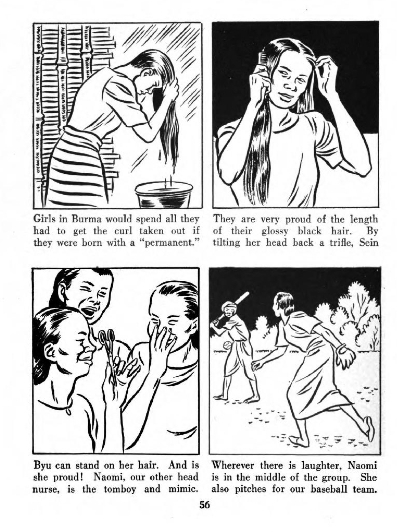
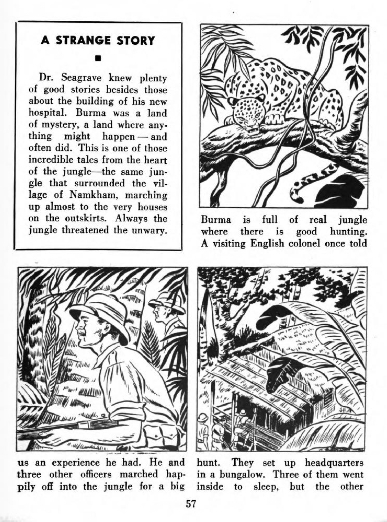
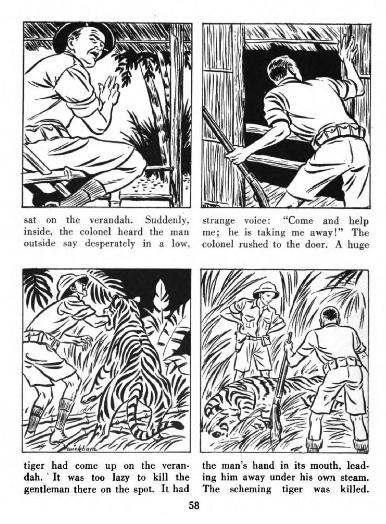
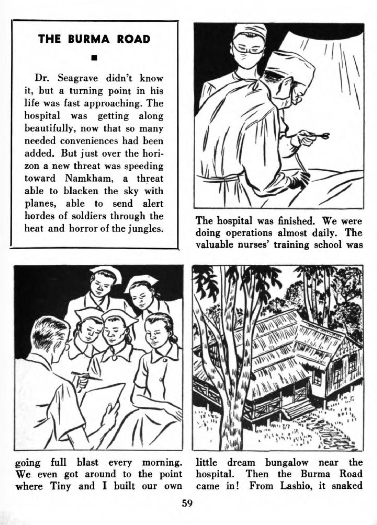
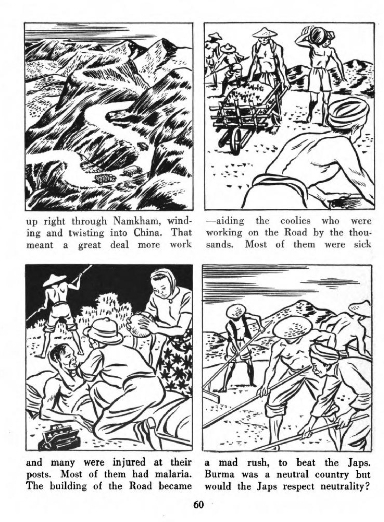
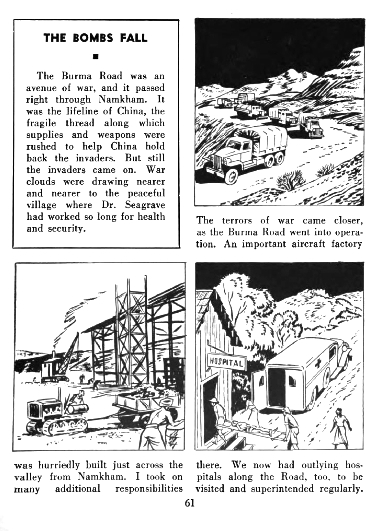
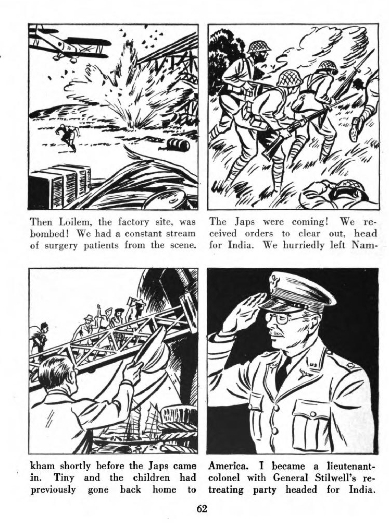
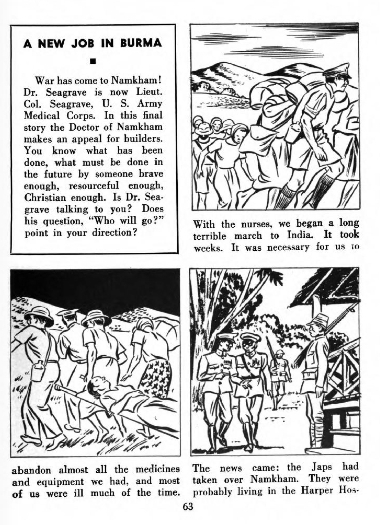
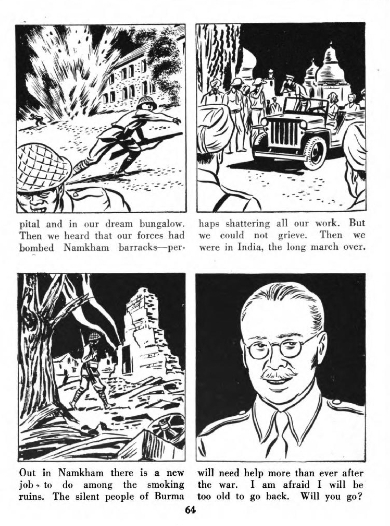
TOP OF PAGE PDF SOURCE DOCUMENT ON THE ROAD TO MANDALAY LIFE VISITS AN ARMY HOSPITAL IN BURMA REMEMBERING THE FORGOTTEN THEATER Internet Adaptation © 2017 Carl W. Weidenburner Portions copyright 1944 The Judson Press Digitized by Google - Original from University of Wisconsin Visitors |
